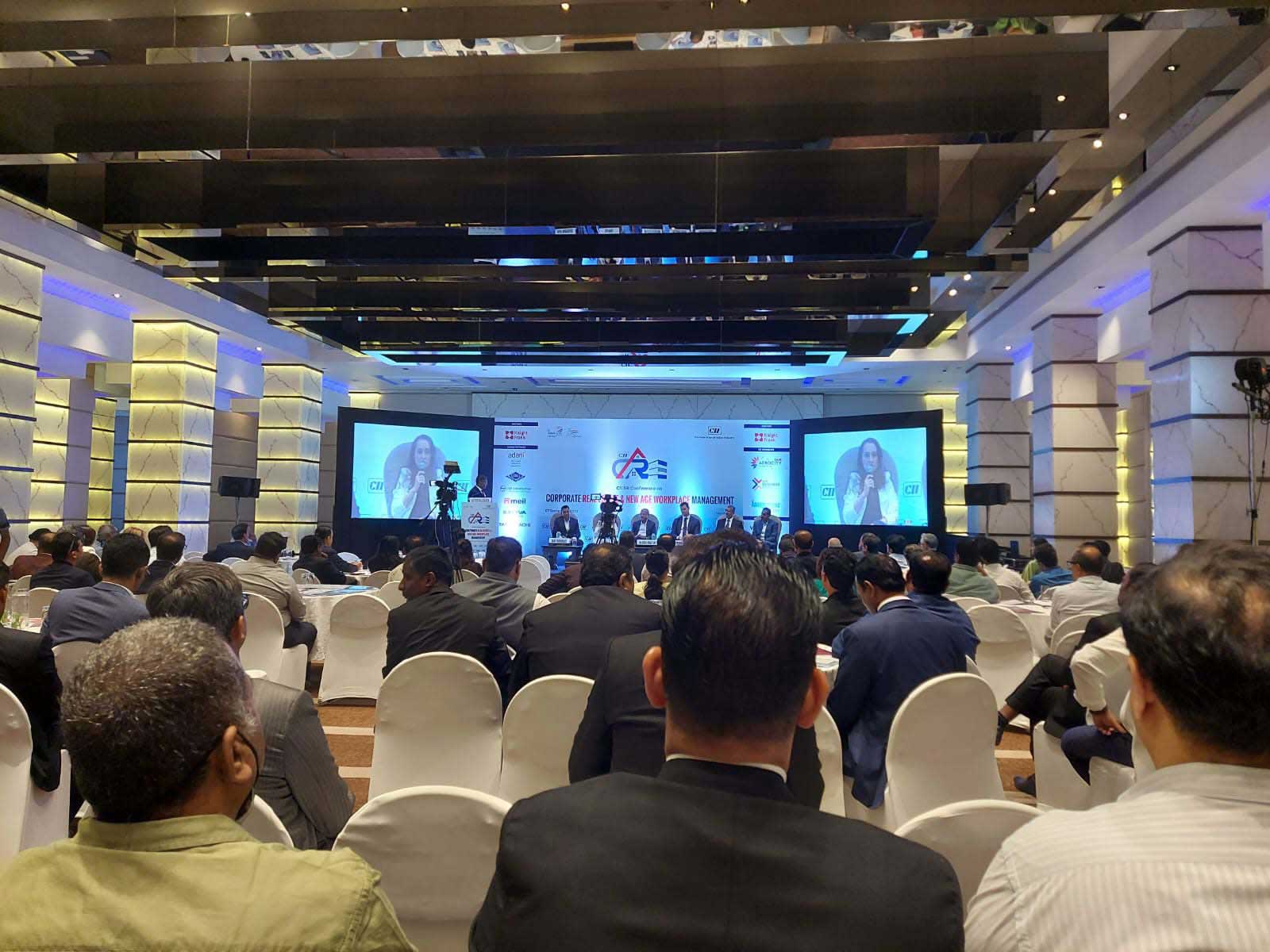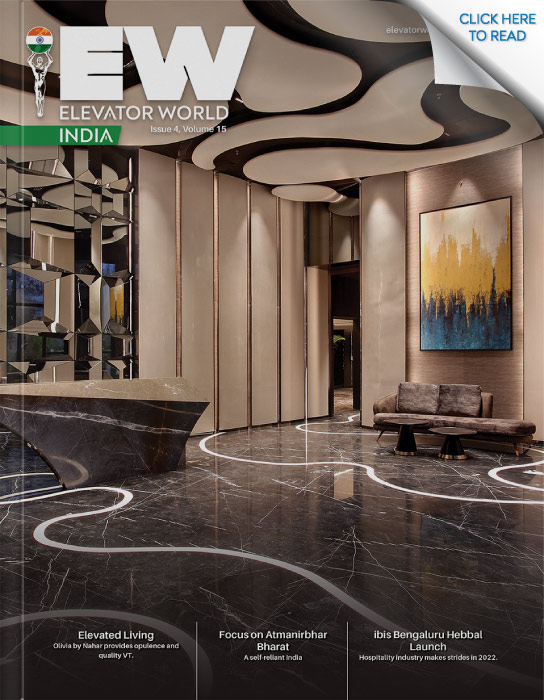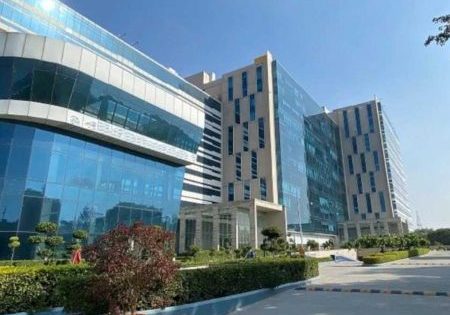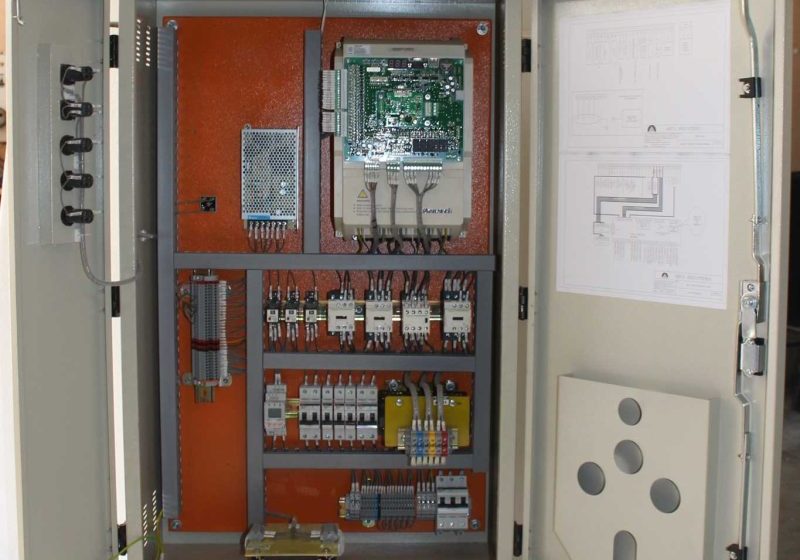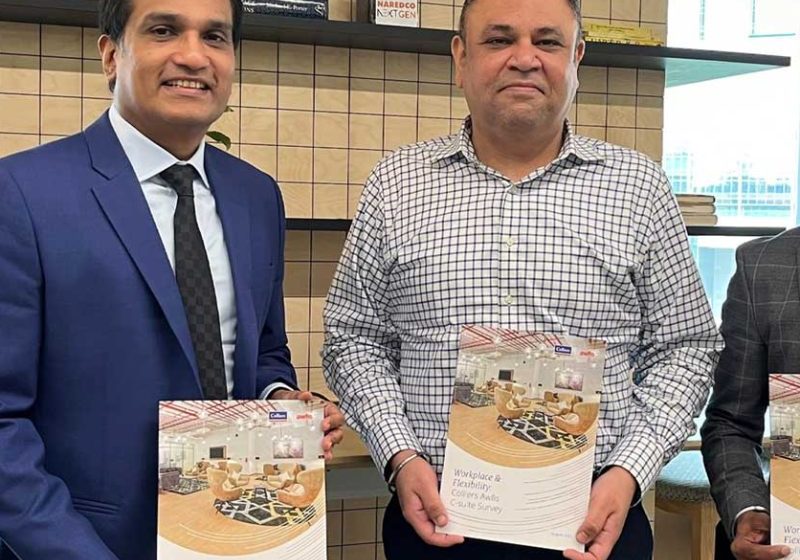Research reveals trends during third edition of conference.
The Confederation of Indian Industry (CII) Southern Region (SR) Conference on Corporate Real Estate (CRE) & New Age Workplace Management was held on September 7 in Bengaluru. A research report by Knight Frank India (KFI), which partnered with CII on the event, was presented during the conference.
The opening session witnessed Sathish Rajendren, chairman, CII SR Conference on CRE and senior executive director and head of Facilities & Asset Management Services, KFI, make opening remarks and provide the theme address. This was followed by an address on global CRE workplace trends by Tim Armstrong, global head, Occupier Strategy and Solutions, Knight Frank, and a special address by Syed Mohamed Beary, chairman, CII, Indian Green Building Council Bangalore Chapter and chairman, Bearys Group.
Moderated by Rajendren, the first session was “CRE Strategy and the Future of the Workplace.” The panelists were Maj Bijay Mukherjee, global head – Real Estate & Administration, Mindtree; Maj S Vijayakannan, regional head of Property Services, Asia Pacific and vice president, Morgan Stanley; Laila Khalil, director, Real Estate & Workplace Services, Salesforce; Armstrong; Naresh Duble, head of Continuous Improvement and Marketing, Knauf Ceiling Solutions; and Mahesh Khaitan, director, Salarpuria Sattva Group.
Deliberations focused on how growing complexity and requirements with respect to commercial real estate due to recent times has accelerated the need for a multidimensional approach. The workplace is experiencing sea changes, keeping in view end users’ wellness and productivity. CREs and property management groups have adopted innovations, various technologies and standards to administer a workplace. The role of CRE is widening in the organization as workplace dynamics evolve at a rapid pace.
The next session, titled “Environmental, Social & Governance (ESG) in Corporate Real Estate – Marching for a Greener World (Net Zero, Governance, Sustainability),” was moderated by Viral Desai, senior executive director, Transactions, KFI. Panelists were Amit Gover, executive director, Office Business, DLF Cyber City Developers Ltd.; Capt. K. Srinivas, CEO, Corner Stone Property Developers Pvt. Ltd.; Dinakar Doraikannu, head of Facilities & Administration, Bloom Energy; Vinod Ugare; manager Property, Real Estate and FM, Volvo Group India Pvt. Ltd.; and Shantanu Chakraborty, executive vice president and regional head, South India, Brookfield Properties. The session highlighted that, in an era of socially responsible investment practices prevailing across the globe, ESG in CRE is no longer an option. It is, rather, the need of the hour, considering business growth and social responsibility. ESG and sustainability are the key drivers for the future workplace to achieve the required objectives of a positive end user experience
The daylong event also featured these sessions:
- “Hospitality in Facilities & Asset Management – End User Experience”
- “Diversity, Equity & Inclusion in the Workplace – Catering to a Diverse Ecosystem”
- “Employee Well-being – Happiness, Health & Recreation in the Workplace”
- “Supply Chain Disruption in Commercial Real Estate”
A CII-Knight Frank research report on the event theme titled “Corporate Real Estate & New Age Workplace Management” was presented. It states that private equity investments in the Indian real estate sector increased by 57% year-on-year as investor confidence improved in 2021 despite prolonged pandemic conditions. Investors pumped US$6.2 billion into the real estate sector as sentiments improved with the rollout of vaccines and a return to normalcy. Fifty-two deals were recorded in 2021, compared to 20 deals in 2020, with investments in 2021 spread across sectors and more diversified versus the previous year.
The workplace is experiencing sea changes, keeping in view end users’ wellness and productivity.
Bengaluru received the highest investments, accounting for 35.8% of total investments in 2021, followed by a 12.4% share received by Mumbai. Among the sectors, office remained the most popular investment choice on the back of the resilience exhibited by investible-grade office assets. Furthermore, strong occupier demand and scope to develop new Grade A warehouse space boosted investments in the warehouse and industrial segments. The retail industry observed a surge in investments as investor interest in stable retail assets grew, allowing retail businesses to recover. In 2021, of total private equity investments, the office sector attracted the largest share (46%), followed by warehousing (21%), residential (19%) and retail (13%).
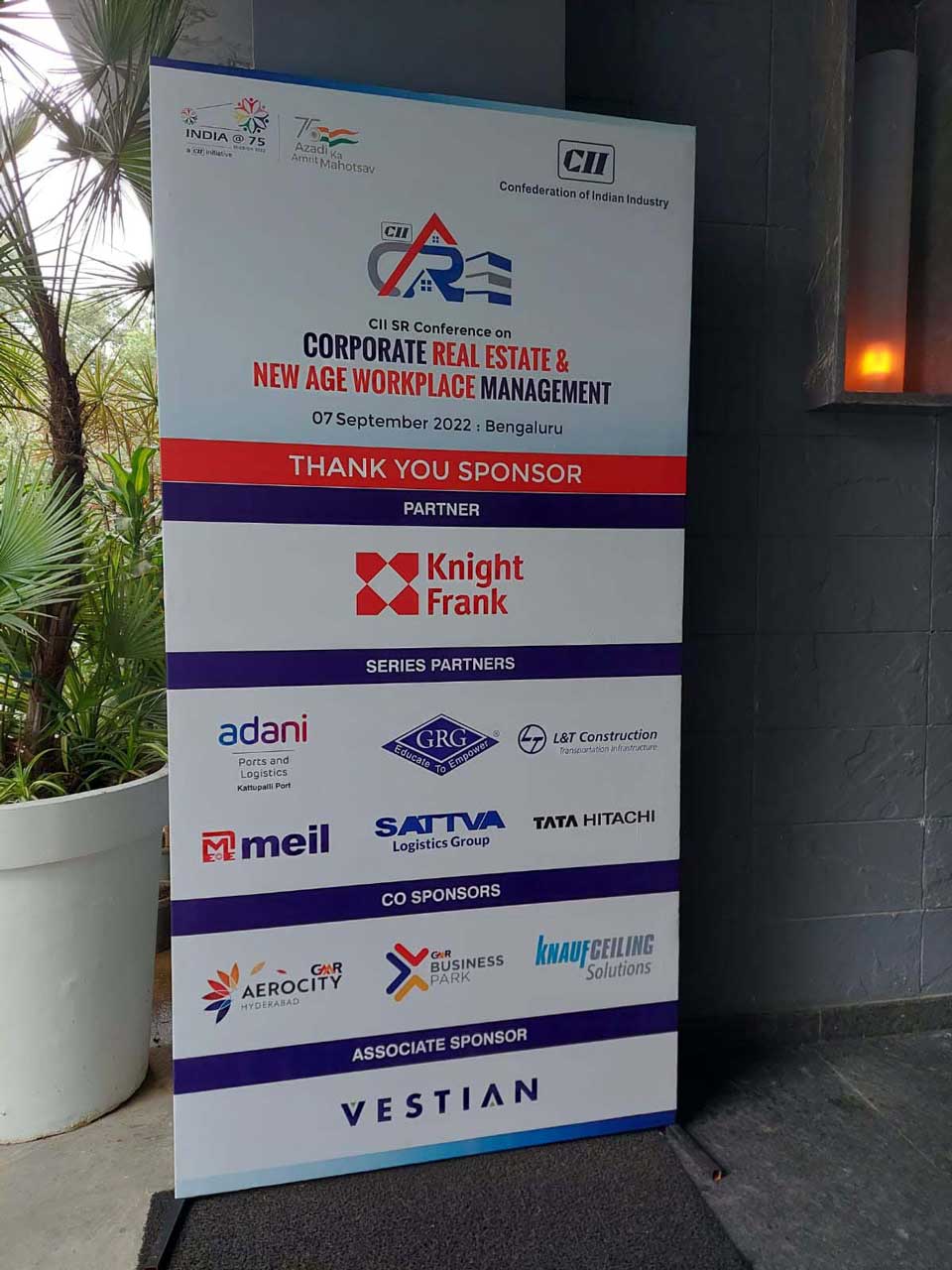
In the report foreword, Shishir Baijal, chairman and managing director, KFI, said:
“[CRE] has seen massive changes in the last two years, with COVID-19 bringing in profound alterations to the way office space is perceived. We have gone through cycles of work-from-office to work-from-home to a variety of hybrid working models. Corporations across the world have been in the experimentative mode to discover the most effective [way] to augment productivity and retain talent. Adding to the complexities induced by the pandemic, recent geopolitical shifts have also affected the dynamism of the [CRE] realm, intensifying the quest for the most appropriate model of working.
“New dimensions have been perceived in the debate, with aspects like sustainability, ESG and socioeconomic diversity added to the mix. In all, we see that the CRE world is ready to emerge as a varied set consideration that goes far beyond the traditional talks of optimization of space to rent ratios. The conversations in India are no different. While the country remains at an advantageous position in the globally competitive market for office space with great talent to offer, India has moved up the value chain in the last two decades, from being a voice and data-based processing center to offering high-value engineering. At the same time, over the last decade, the cost of real estate has remained at an average of US$1 per [ft2] per month, providing a distinct cost advantage to users. The last decade has also seen a corporatization of commercial real estate in India, with global investment companies acquiring ownership. All of this has led to remarkable improvement in the pedigree of ownership in India.
“Knight Frank’s endeavor is to bring these discussions to the fore. Knight Frank is privileged to be partners with [CII] for [this conference], now in its third edition. The objective of this partnership is to bring the [CRE] community together to share insights on the new age workplace trends. By this event and the report, we hope to bring to the forefront developments in aspects ranging from new EGS considerations to next-generation technologies that impact [CRE].”
Get more of Elevator World. Sign up for our free e-newsletter.
